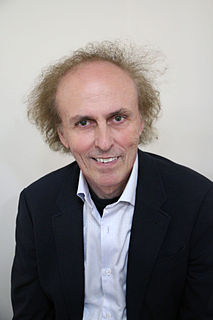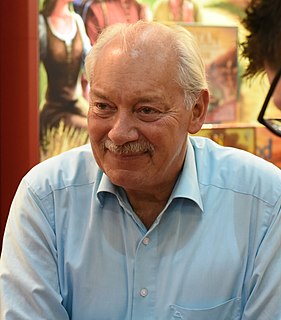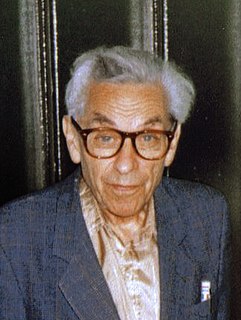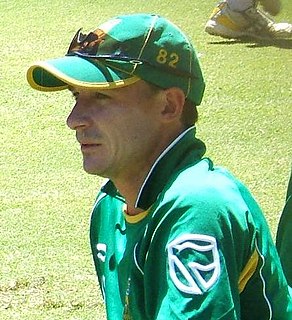A Quote by John Forbes Nash, Jr.
As a graduate student I studied mathematics fairly broadly, and I was fortunate enough, besides developing the idea which led to 'Non-Cooperative Games,' also to make a nice discovery relating to manifolds and real algebraic varieties.
Related Quotes
You have this world of mathematics, which is very real and which contains all kinds of wonderful stuff. And then we also have the world of nature, which is real, too. And that, by some miracle, the language that nature speaks is the same language that we invented for mathematics. That's just an amazing piece of luck, which we don't understand.
I studied Comparative Literature at Cornell. Structuralism was real big then. The idea of reading and writing as being this language game. There's a lot of appeal to that. It's nice to think of it as this playful kind of thing. But I think that another way to look at it is "Look, I just want to be sincere. I want to write something and make you feel something and maybe you will go out and do something." And it seems that the world is in such bad shape now that we don't have time to do nothing but language games. That's how it seems to me.
[Though computer science is a fairly new discipline, it is predominantly based on the Cartesian world view. As Edsgar W. Dijkstra has pointed out] A scientific discipline emerges with the - usually rather slow! - discovery of which aspects can be meaningfully 'studied' in isolation for the sake of their own consistency.
When a sculptor creates a sculpture, a writer writes a novel, or a painter paints a motif on a canvas, he needs talent and expertise. But to be successful in his endeavor, he also needs to have the passionate feeling that he wants, at all costs, to create a work of art which, in his head, constantly demands to be accomplished. The same also applies to developing board games or card games.






































